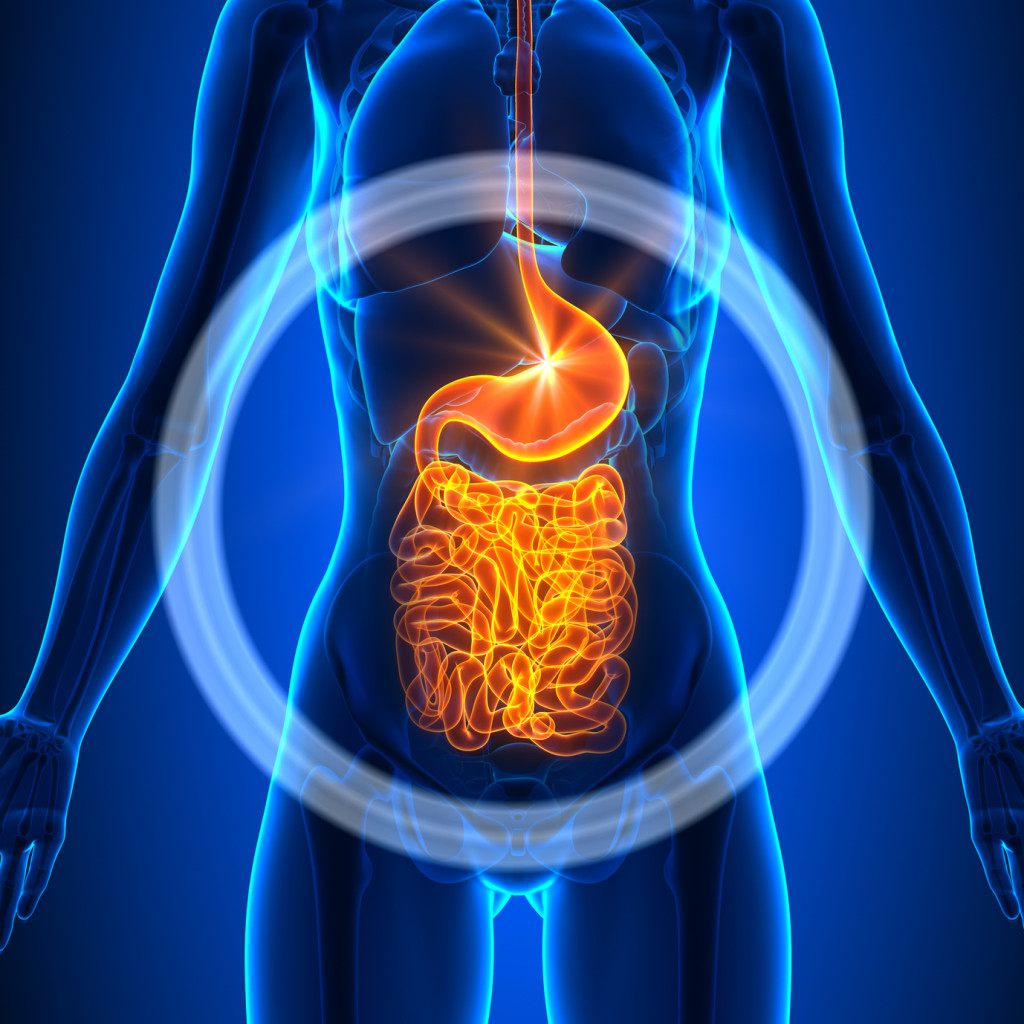
Bacterial overgrowth of the small intestine is a serious digestive disorder that is treatable after proper diagnosis. It occurs when bacteria in in the large intestine travel to the small intestine, often the result of poor HCL production in the stomach or an insufficient amount of pancreatic enzyme function. Although widespread, it is frequently unsuspected in cases of chronic bowel problems and carbohydrate intolerance because its symptoms often mimic other disorders. SIBO is commonly found in people with diabetes, scleroderma, gastric bypass surgeries, interstitial cystitis, restless leg syndrome, diverticulosis, Crohn’s disease, Celiac disease, strictures in the intestines, poor ileocecal valve function, poor motility, or recent stomach surgery.
SIBO results in IBS-like symptoms of gas, bloating, diarrhea, constipation, and/or alternating diarrhea and constipation. These symptoms are chronic and last for weeks and months, then years. You feel worse when eating carbohydrates and you may need to loosen your pants at the end of the day. The symptoms seem to worsen as the day goes on as these bacteria ferment carbohydrates and sugars in your GI tract. The bacteria also produce by-products that are irritating and toxic to your intestines. This can eventually lead to leaky gut and deficiencies of fat-soluble vitamins, B12, and iron.
Integrative Medicine of New Jersey uses a simple, non-invasive test that detects bacterial overgrowth in the small intestine, a common condition that often underlies chronic symptoms of maldigestion and malabsorption, including bloating, gas, diarrhea, irregularity, and abdominal pain.
Bacterial concentrations in the small intestine are normally kept to a minimum. When excessive, the delicate mucosal lining is disrupted, including the microvilli that facilitate absorption. As a result, bacterial overgrowth of the small intestine can inhibit nutrient absorption and lead to the following serious health problems:
• Altered intestinal permeability (“leaky gut”)
• Anemia
• Carbohydrate intolerance
• Fibromyalgia
• Malabsorption
• Chronic Fatigue Syndrome
• Malnutrition and weight loss
• Osteoporosis
The Bacterial Overgrowth Breath Test is appropriate for those who demonstrate:
• Irritable Bowel Syndrome (IBS), the most commonly diagnosed gastrointestinal disorder, affecting 20% of the general population. The test aids in identifying the actual cause of IBS. Studies suggest that as many as 50-75% of patients with IBS have SIBO, as demonstrated by hydrogen breath testing.
• Unexplained abdominal symptoms, especially gas and bloating
• The inability to tolerate sweet or starchy foods, fiber, or prebiotic/probiotic supplements
Procedure:
From timed collections, this safe, non-invasive test measures both hydrogen and methane levels produced by bacteria in the small intestine. Higher levels of these gases in the breath indicate increased bacterial concentrations.
Clinical Utility:
• Once bacterial overgrowth has been detected, Integrative Medicine of New Jersey will provide intervention strategies involving diet, digestive support, probiotics and antimicrobials to treat the condition.
• Successful eradication of SIBO has been shown to reduce bloating, gas, diarrhea, and abdominal pain in patients more effectively than many other treatments for IBS.
• Bacterial overgrowth may manifest silently, without overt clinical signs. Those without clear symptoms of gastrointestinal distress may benefit from testing, especially those with a history of chronic constipation, hypochlorhydria (including use of acid-blocking drugs), or maldigestion.













